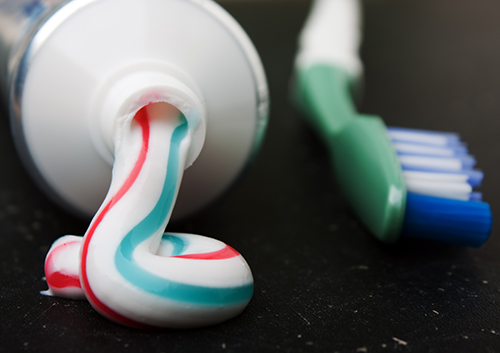Persistent Bad Breath? It Could Be Time to Talk to Your Periodontist
February 7th, 2024

Part of presenting our best faces to the world is making sure our smiles are bright and our breath is fresh. Sure, we’ve all been embarrassed by an occasional pungent reminder of that garlic bread we just couldn’t pass up, but with daily brushing and flossing, fresh breath is the norm. Until it isn’t.
If you’ve been carefully avoiding strong foods in your diet, if you’ve started brushing a lot more often, if you’re relying on mints and mouthwash to get you through the day, and you still have bad breath, it’s time to see your dentist or doctor.
Chronic bad breath can be a symptom of tooth decay, dry mouth, oral infections, diabetes, kidney disease, and many other medical or dental problems. It can also be a red flag for serious gum disease, or periodontitis.
How does gum disease cause persistent bad breath? The bacteria and plaque that we are careful to brush away from the surface of our teeth can also stick below the gum line. These bacteria irritate the tissues around them, and the area becomes inflamed. Pockets form around the teeth where bacteria collect and multiply, becoming the source of that unpleasant odor.
And, while bad breath is an embarrassing consequence of gum disease, there are other consequences that are far more serious. Infection causes inflammation, and untreated infection and inflammation lead to the breakdown of gum and bone tissue and, eventually, even tooth loss.
If your dentist discovers signs of advanced gum disease, it’s time to give a periodontist like Dr. Rothstein a call! Because this dental specialty requires three additional years of study after dental school, focusing on the treatment of periodontal disease and cosmetic restorations, periodontists have the knowledge and experience to treat the cause of your gum disease and to restore your gum and bone health.
What can your periodontist do for you? Periodontists are skilled in many procedures that can be used to save gums and teeth, including:
- Antibiotic therapy, which can be used alone or with other procedures to treat periodontitis.
- Non-surgical treatments, such as scaling and root planing, which remove plaque and tartar from areas of the teeth above and below the gum line and clean and smooth tooth surfaces.
- Flap surgery, which allows the periodontist to remove tartar, smooth any irregular tooth surfaces, and then reposition the gum tissue snugly around the teeth to eliminate pockets where bacteria can multiply.
- Bone and gum grafts, bone surgery, and surgical tissue regeneration, to replace and repair damaged bone and gum tissue.
If you are experiencing persistent bad breath, talk to your dentist or doctor about the possible causes, and whether a visit to our Livingston office is in order. Periodontal treatment can stop the progression of gum disease, and even restore damaged tissue and bone to make sure you keep your teeth for a lifetime. And one additional bonus? The return of your bright smile and fresh breath. Let your periodontist help you breathe easy once again!






